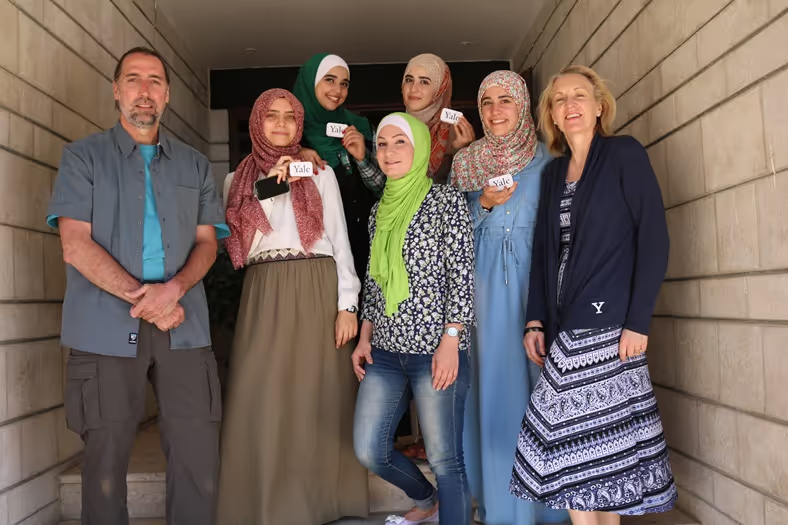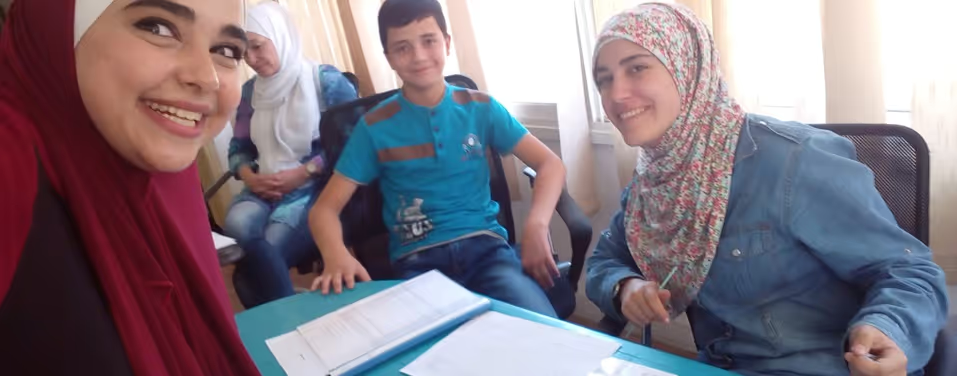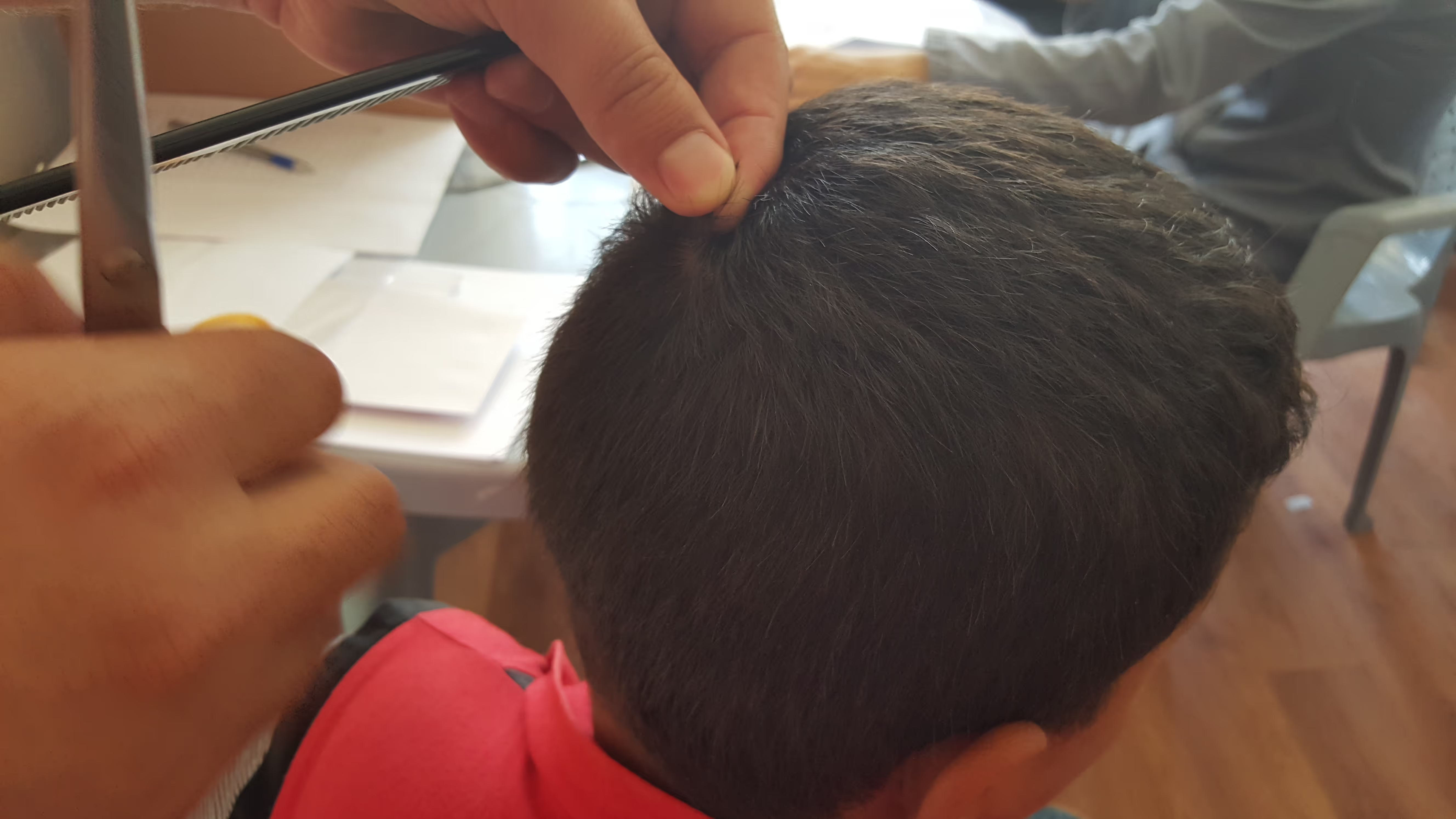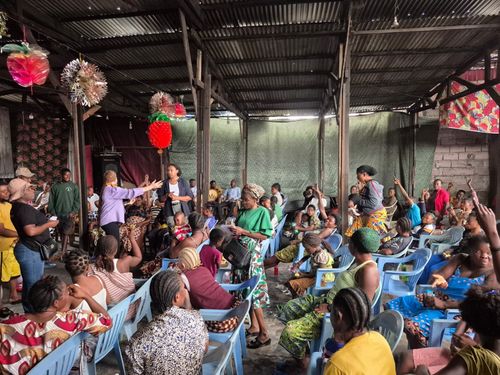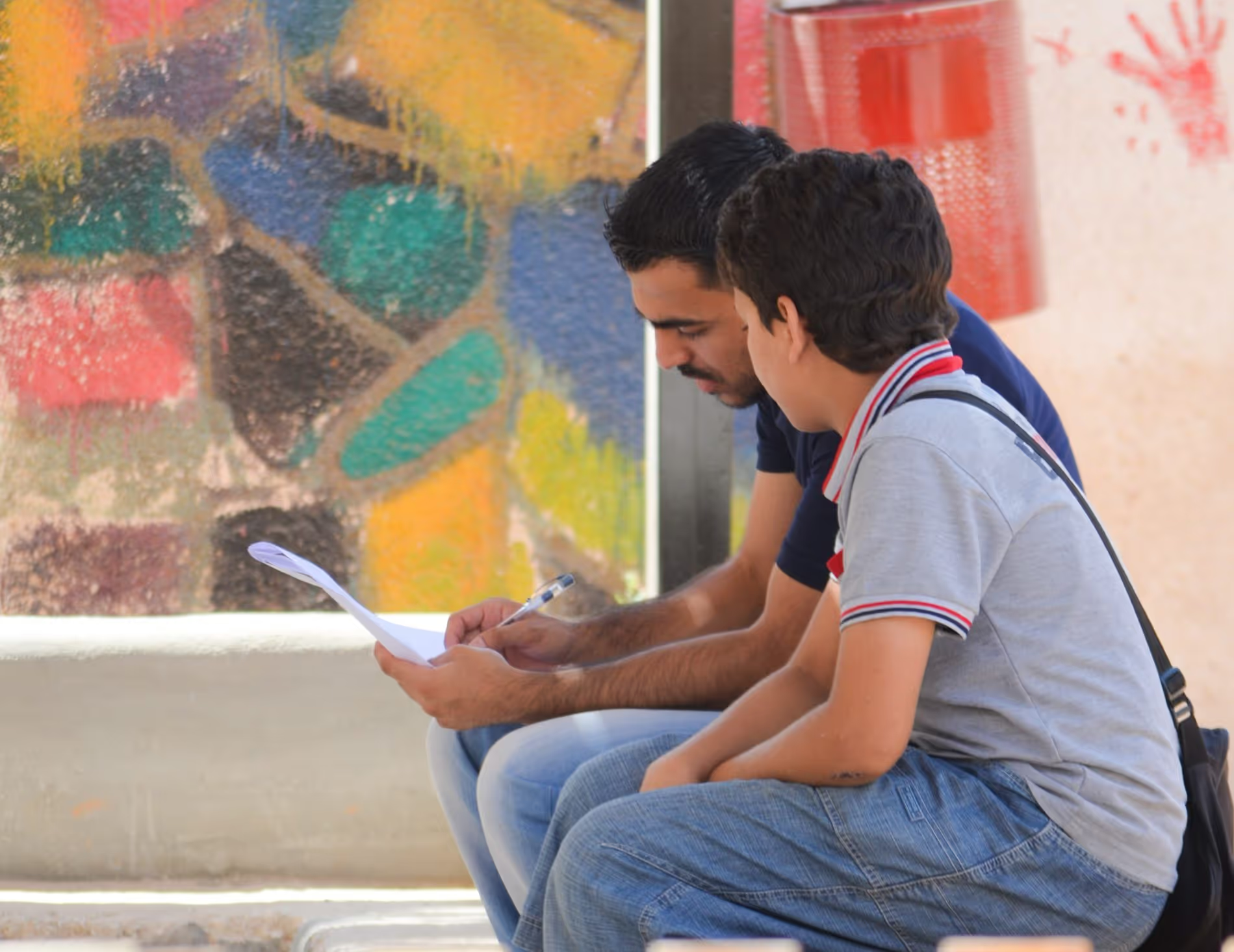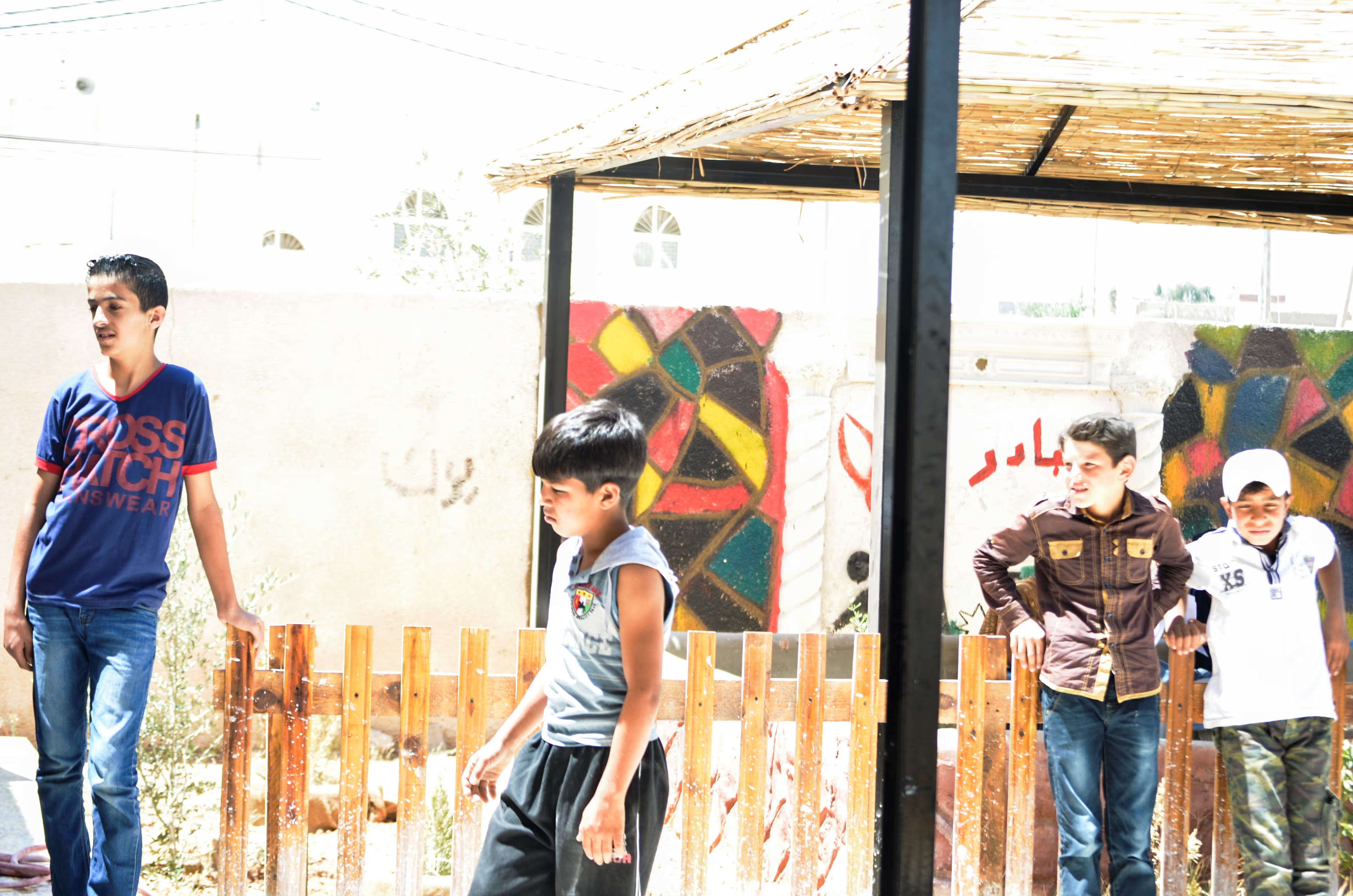Measuring the health and wellbeing impacts of a scalable programme of psychosocial intervention for refugee youth
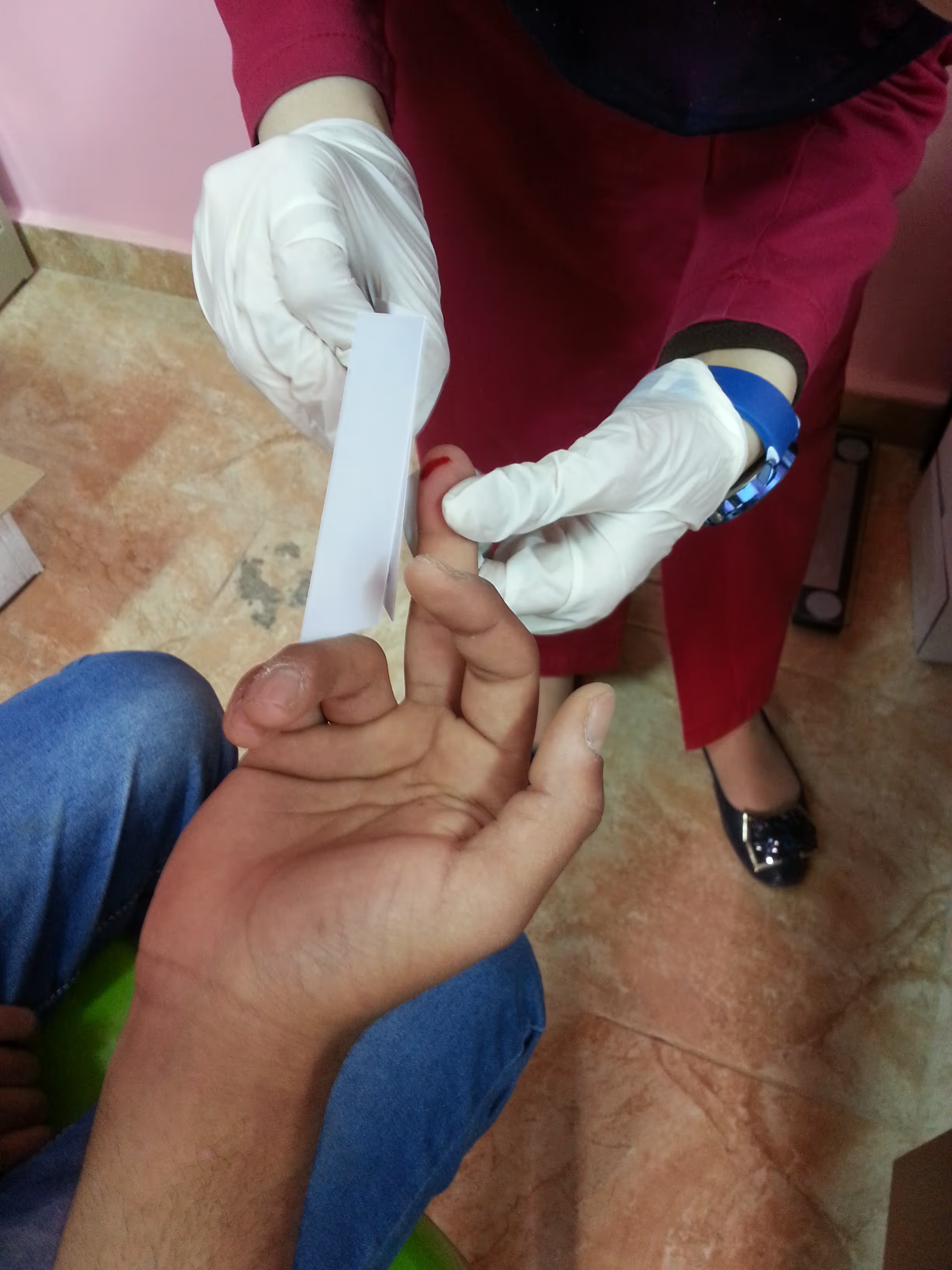
Project overview
This research assessed the health impact of Advancing Adolescents, a psychosocial intervention of structured, group-based activities for youth affected by the Syria and Iraq crises. It was the first study to measure stress alleviation in adolescents beyond subjective self-reports, through measuring ‘stress under the skin’ or ‘toxic stress’ in the brain.
Countries
Jordan
Organisations
Yale University
Partners
Mercy Corps, Taghyeer, University of Western Ontario, Queen Margaret University, Harvard University
Area of funding
Humanitarian Research
Grant amount
£295,131
Start date
01
April
2015
End date
01
July
2017
Project length (in months)
27
Funding calls
Topics
No items found.
Status
Closed
Project solution
This project offers [specific solution or intervention] to tackle [challenge]. By implementing [strategies, tools, or innovations], the project aims to achieve [desired outcomes]. The approach is designed to [specific actions or methods] to bring about meaningful change in [community, region, or issue area].
Expected outcomes
This project aims to achieve [specific outcomes], such as [measurable results, improvements, or changes]. The expected impact includes [benefits to the target community, advancements in research or innovation, or long-term effects]. By the end of the project, we anticipate [specific changes or milestones] that will contribute to [broader goals or objectives].
No items found.
Principal Investigator: Catherine Panter-Brick (Yale University)
What did the study set out to achieve?
This research assessed the health impact of Advancing Adolescents, a psychosocial intervention of structured, group-based activities for youth affected by the Syria and Iraq crises. This programme is a brief, scalable intervention, implemented by Mercy Corps in Jordan, Lebanon, Iraq, Syria, and Turkey as part of the No Lost Generation initiative. It is strategic in focusing on adolescence, a key time for protecting the next generation and building its future, and innovative in serving both refugee &; host communities.
The impact evaluation was a randomised controlled trial, measuring the impacts of profound stress attunement for 11-15 year old Syrian refugee and Jordanian youth, living in five urban centers in northern Jordan. It examined psychosocial, physiological and cognitive outcomes – stress in the mind, the body, and the brain – as well as levels of resilience, at three time-points (pre-intervention, post-intervention, 1-year follow-up).
Youth-focused interventions in humanitarian crises had never previously measured stress alleviation in ways that go beyond subjective self-reports, through measuring ‘stress under the skin’ or ‘toxic stress’ in the brain. This mixed-method study was the first to do so, including measures of stress biomarkers and tablet-based tests of cognitive function. Robust scientific assessments are essential in order to inform potential scale up strategies.
What were the key findings?
- A structured approach to stress attunement, implemented by trained community workers can be effective in reducing psychosocial stress and insecurity for war-affected youth;
- A brief intervention is also effective in regulating stress physiology: cortisol levels were reduced hair cortisol by a third;
- Culturally-relevant tools such as the Human Insecurity Scale and the Child Youth Resilience Measure are among the most useful for evaluating risk and resilience in humanitarian contexts;
- A strong partnership between local and international actors is essential to overcome challenges in the field and deliver a robust, ethical, and multi-disciplinary impact evaluation.
The study demonstrated the effectiveness of methods of assessment that go beyond self-reports. The use of hair cortisol, as a marker of chronic physiological stress, is a compelling indicator of stress regulation, which is an important outcome for crisis-affected populations.
What does this mean for policymakers and practitioners?
As a result of the study, Mercy Corps has incorporated the key study findings into regional programming, and expanded the inclusion of psychosocial support as part of larger livelihoods interventions in Lebanon, Iraq, Jordan and Palestine.
Mercy Corps has also adopted three Arabic-language tools - the Child Youth Resilience Measure, the Human Insecurity scale and the Strength and Difficulties Questionnaire – in ongoing programming in the Middle East Region, as this study demonstrated their relevance for research monitoring and impact evaluations.
A ‘proof-of-concept’ tool-kit to support academic and humanitarian actors to make informed choices around innovative methods for project evaluation was developed.
A number of peer-reviewed articles have been published as a result of this study on how to evaluate mental health, resilience, biological, and cognitive health outcomes in interventions focused on war-afflicted youth. These are listed below.
No items found.
Project delivery & updates
Stay up to date with the latest developments from this project. Here, you will find details on what has been delivered, resources created, and regular updates as the project progresses. Access key documents, reports, and other materials to see how the project is making an impact.
No resources/updates have been published yet for this project. Sign up for our newsletter to stay informed about upcoming publications and updates!
Join our Newsletter
Resources
Resilience in Context: A Brief and Culturally Grounded Measure for Syrian Refugee and Jordanian Host-Community Adolescents
Journal article
LEARN MOREInsecurity, distress and mental health: experimental and randomized controlled trials of a psychosocial intervention for youth affected by the Syrian crisis
Journal article
LEARN MOREHair cortisol concentrations in war-affected adolescents: A prospective intervention trial
Journal article
LEARN MOREC-reactive protein, Epstein-Barr virus, and cortisol trajectories in refugee and non-refugee youth: Links with stress, mental health, and cognitive function during a randomised controlled trial
Journal article
LEARN MOREFAAH, SLC6A4, and BDNF variants are not associated with psychosocial stress and mental health outcomes in a population of Syrian refugee youth
Journal article
LEARN MOREAssociation of MAOA genetic variants and resilience with psychosocial stress: A longitudinal study of Syrian refugees
Journal article
LEARN MOREMeasuring the psychosocial, biological, and cognitive signatures of profound stress in humanitarian settings: impacts, challenges, and strategies in the field
Journal article
LEARN MOREMeasuring the health and wellbeing impacts of a scalable program of psychosocial intervention for refugee youth
Case study
LEARN MOREDemonstrating the effectiveness of mental health support for war-affected adolescents
Case study
LEARN MORELove and peace across generations: Biobehavioral systems and global partnerships
Journal article
LEARN MORENovel GxE effects and resilience: A case:control longitudinal study of psychosocial stress with war-affected youth
Journal article
LEARN MOREComparing online and in-person surveys: assessing a measure of resilience with Syrian refugee youth
Journal article
LEARN MORE